- Home
- George R. R. Martin
Old Mars Page 38
Old Mars Read online
Page 38
“How should I know?”
“He didn’t answer the phone.”
“Does he even know how to use a phone?”
Dave took a deep breath. On Earth, he had learned not to respond to people who said nasty things about Martians and the humans who lived on Mars, though it had taken more than a few fistfights to make those lessons stick. “I’ll be at Dad’s if you want me,” he said.
“Fine,” she said, and she broke the connection.
It was the longest conversation they’d had in a decade, and it made Dave worry. Months? He let the phone go and walked back to the clerk to arrange for transport to Charlestown. There was none, of course, but the clerk was willing to sell his own scooter to a fellow Marsman. And he was happy enough to take Earth creds, which usually came from tourists and the people who dealt with them; Dave had acquired a pretty decent supply from part-time jobs during school. He slung his duffel on the back, checked the charge gauge, and closed the canopy to head north. The scooter had a mapper, but he didn’t need it; he had a good sense of direction, it wasn’t all that far, and you couldn’t get lost following the Hiddekel canal. The sky was dark when he started out, but the scooter’s headlight was bright and the road was in good shape, well cleared of the water-seeking nettles that perpetually encroached on the canal. He made it to Charlestown by dawn.
Charlestown had never been much of a town, even though it was on the route to the confluence of two canals, but then, even the major cities on Mars were nothing compared to the ones on Earth. But Dave had had enough of the crowds and bustle of Earth, and Charlestown looked very good to him, its single main street lined on both sides with ramshackle houses that doubled as stores and bars, with lanes of smaller homes spreading outward on the side away from the canal. North of the town was the boat dock, with half a dozen barges and three small sailboats moored there, and beyond that, the arc of Martian cottages where Rekari and his extended family lived. As Dave expected, only a few people were on the main street that early, and he recognized them all. One even called his name as he passed, and he raised an arm in greeting though he didn’t stop.
His father’s place, close to the north end of town, was both office and home, with a sign above the door that announced, in faded lettering, “Ben Miller and Sons, Tourism. See the Ancient Ruins.” His father had been optimistic while his mother was alive, but there had never been more than one son; and the son-in-law who might have worked with him but worked for the regional utility instead was unimpressed by the grants his father-in-law had gotten from Syrtis University and the remains of the six ancient villages he had discovered over the last thirty years; archaeology on Mars, Bev’s husband said, wasn’t worth much beyond entertaining a few tourists.
Dave closed the scooter into the side shed and tried the office door. It wasn’t locked. Nothing in Charlestown was ever locked, although a key hung from the handle in case anyone wanted to use it. Inside, he found the tiny front room that served as an office dark, its windows too grimy to admit more than a hint of morning sunlight, and the light switch dead under his hand. He left the door open, and the splash of light showed undisturbed dust everywhere. He flicked on the battery-powered flash every Marsman carried and went to the door separating the business from the living quarters. In his father’s bedroom, the bed was rumpled, but the bureau drawers were closed, the clothing in them neatly folded, and the jacket he always wore in the field was missing from its hook. Farther on, Dave’s own bedroom was just as he had left it, with a couple of school trophies on the bureau and a pair of old shoes under the bed.
“You don’t have to come back,” his father had said. But Dave had always known he would. Ben Miller and Sons. Home.
The first few months away had been hard. There had been homesickness, of course, but he had pushed that aside with exercise, first on the ship and even more on Earth itself, until the feeling of wearing a backpack that weighed twice as much as he did eased. By then, graduate school and all the sights and experiences of the exotic mother planet had absorbed him, and thinking about home no longer bothered him. Except perhaps when he woke up on a clear morning and saw that piercingly bright sunlight—the light that was never so strong on Mars—between the curtains.
He dropped the duffel on the bed and opened his own bureau drawers one by one, trying to remember what else he had left behind. Not much. There were a couple of T-shirts in the bottom drawer. And underneath them was a small notebook.
He’d always carried a notebook when he went out exploring, but his had gone with him to Earth and were in his duffel now. This was one of his father’s. Only the first page had anything written on it. There was a date at the top, nearly five Martian months ago, and below that were a few lines in his father’s familiar hand, about likely ruins where the Alcronius canal emerged from the northern ice cap. It was a good lead, his father’s notes said, because it came from the oldest Martian he had ever met, who had once helped him by translating some barely legible inscriptions. A good lead, but a long trip, and he was sure he and Rekari would be gone for quite a while, checking it out. At the bottom were the coordinates of the place.
As of the date of the entry, the northern ice cap had been as melted as it ever would be, and the canal current had ebbed. You could easily take a boat north then. Rekari had a boat. Dave had seen it at the dock.
He was tired after the long ride, but he was even more hungry. The cabinets in the tiny kitchen were empty; his father had probably taken their contents on the trip north. So Dave went out to see if one of the local restaurants had anything interesting, which on Mars meant anything at all. Jacky’s, just down the street, had peanut butter and flatbread for breakfast, and Dave was glad enough for that. As a student on Earth, he hadn’t eaten much better.
“I don’t know that your dad thought you’d come back,” said Jacky. She was tall and thin, with cheeks weathered by the Martian winds, but she had a smile for him, and a treat of homemade blackberry jam. Jacky had always been a better big sister than Bev, and Dave had often wondered why his father hadn’t married her and made her a real part of the family.
“He’s been gone quite a while, hasn’t he? My sister said months.”
Jacky looked at her watch. “One hundred and thirty-three days.”
Dave leaned an elbow on the table, gathered up a few crumbs of the flatbread, and tossed them into his mouth. “I saw Rekari’s boat at the dock. Did he go along?”
Jacky nodded. “But he came back, a month or so ago. He said somebody had to look after the business. Not that there’s been any lately. I haven’t seen a tourist since last year.”
Dave paid the check in Earth creds, and Jacky tucked them into her shirt. “It’s good to see you back, kid. Maybe there’ll be something better for dinner. I hear the Warners have an extra chicken. I might be able to talk them out of it.”
“I’d like that,” said Dave.
“Check back at five.”
He went outside and headed for the Martian quarter.
The main street was busier now, with people doing their morning shopping before heading out to the scrubby fields of genetically modified peanuts, potatoes, and barley that stretched eastward from Hiddekel. On the west side of the canal, someone seemed to be trying to raise wheat again—that happened every decade or so, according to his father, when new settlers arrived from Earth. It never worked very well, but it usually produced enough spindly stalks to feed a few goats. Dave had eaten plenty of wheat bread on Earth, and he didn’t think it was anything special. Chicken, though, was something else.
Several people stopped to say hello to him, to ask about his experience on Earth, to tell him how good he looked, and it was much more than a ten-minute walk before he finally reached Rekari’s compound. The arc of cottages there, with its open side to Hiddekel, which the Martians called Moreyah, had stood, Rekari once said, for a thousand years, which wasn’t all that long by Martian standards. The cottages themselves were made of a local soft red stone, with roofs of w
oven plant fiber coated with hardened clay. The Martians grew the plants for their seeds, which humans considered inedible, and fed the seeds not just to themselves but to small lizards living in burrows in the canal walls. The lizards were their primary source of protein, and humans also considered them inedible. Dave had tried lizard stew once, and only courtesy kept him from spitting out his first and only mouthful. He had always thought it was a good thing that Rekari’s people felt much the same about human food—that meant there was little competition for those kinds of resources between Martians and Marsmen. Although his father had insisted that in an emergency, Martian food would not kill him. Fortunately, Dave had never needed to test that claim.
Rekari’s son Burmari was in the center of the arc, working on a boat that was obviously new and nearly finished, only the mast and sail missing. When he saw Dave, he made the Martian sign for welcome, then walked over to clap him on the shoulder in a human greeting. Like all Martians, Burmari was thin and wiry, with ruddy skin and large, pale eyes, and he was more than a head taller than any Marsman. Dave smiled and reached up to return his greeting. They had known each other all of Dave’s life.
“School treated you well,” said Burmari. “You look healthy and strong.”
He spoke in the local Martian language, but Dave had no trouble understanding him; since childhood, he had been as fluent in it as in English.
“Extra gravity will do that,” said Dave. “But I’m happy to be back where there is less of it. Where is your father?”
But before his son could respond, Rekari came out of the cottage at the far end of the arc, and he made the sign of greeting, then held his arms out for a very human-style embrace.
After that, there was a gathering of the rest of Rekari’s family from every point on the arc, his wife, his younger brother and his wife, and their two children. A table and stools were brought out, and cups of an herbal drink that both humans and Martians liked, mint-flavored and faintly alcoholic. Dave could see the curiosity on the faces that surrounded him, but only the nephew, who had been little more than a knee-high nuisance when Dave left, was impolite enough to ask about Earth. Settling himself with a cup, Dave talked about the cities, the crowds, the school, and his teachers, trying to give an overview of the experience, and they seemed willing to listen as long as he wanted to go on. Eventually, though, Rekari called a halt, saying that Dave was too tired to keep talking. Adult Martians were generally good at reading humans—much better than humans were at reading them—but Dave actually felt less tired than before his meal. But he knew that if anyone had answers to his own questions, it was his father’s Martian business partner.
“I think we should speak in the office,” Rekari said, raising a hand in a gesture that meant to wait a moment. He ducked inside one of the cottages and came back with a green Martian lamp. There wasn’t much left of the old civilization, but the sun-loving lichen that the ancients had either discovered or created were still around, and they could be persuaded to give a little light back for a few hours every day if you knew exactly how to treat them. Rekari had tried to teach Dave the trick, but he had always ended up overfeeding them, which stifled their light.
“I have a flash,” Dave said, patting one of his jacket pockets.
“I’m sure you do,” said Rekari, but he took the lamp anyway.
In the office, Rekari closed the front door and set the light on the long table that served as a desk and a display surface for maps. He brushed the dust from his usual chair and sat down. Dave took his father’s chair and waited. He knew that Rekari would eventually get around to telling him what he wanted to know, and there was no use trying to rush him. Martians always took their time.
Rekari folded his long fingers on his knee. “Did you find school on Earth to be useful?” he asked.
Dave had spent his undergraduate years at Syrtis University, where his teachers were all his father’s former students, and he had been satisfied at the prospect of earning his doctorate there. But his father had insisted that the Earth experience would make him a better archaeologist, even though on Earth he would be working at digs that had already been thoroughly explored by several generations of Ph.D. candidates. In the end, he realized that his father had been right. The range of knowledge of his teachers on Earth was astonishing, and they were more than willing to mentor the son of Dr. Benjamin Miller.
“Yes,” Dave said. “Extremely useful.”
Rekari’s hands moved in the Martian sign of approval. “Your father was pleased that you went. One of his old friends there wrote to him and said you were doing well.”
Dave waited.
Rekari seemed to be studying him. At last, he said, “Your father was ill.”
Dave felt a chill run up his back. It was bad news, then. “What do you mean?”
“His heart was not functioning properly.”
“He seemed fine when I left.”
Rekari made the Martian negative sign. “There were pills to help, even before you left.”
Dave frowned at him. “You should have told me.”
“The doctor said there was nothing to be done beyond the medication. A procedure on Earth might have helped, but the doctor was not certain your father would survive the journey. And your father did not wish to waste the ticket on himself.”
“I would have given it to him, gladly.”
“He knew that.”
Dave sighed heavily. His father had always been so stubborn. “You really should have told me.”
Rekari’s voice was low. “That may be, but he did not wish it.”
Dave understood, but it was so frustratingly Martian. They had immense respect for their own elders, and that spilled over to the humans they knew best. You just didn’t cross an elder if you were a Martian. That was why Rekari had gone along on so many expeditions even when he didn’t believe they would result in anything.
Rekari had been his father’s business partner for more years than Dave had been alive, helping his father guide rich Earth tourists through the best-preserved Martian ruins, offering lore that was traditional if not always accurate—as he admitted privately—and translating ancient inscriptions in colorful ways. In the long periods between tourist visits, the two of them searched for more ruins as well as for any interesting minerals that the long-depleted Martian landscape had to offer. The ancient civilization had used up most of the planet’s easily accessible resources, leaving a legacy of rust thinly scattered over the surface, but his father had once found a narrow vein of opal in a cliff exposed by the melting of the northern ice cap. Now there were rings and pendants of that opal among the more affluent residents of Syrtis City, although the gold for the settings had been brought from Earth in the luggage of the city’s only jeweler. The opal money had helped to finance several expeditions to sites that seemed to have exceptional archaeological potential. Nothing significant came of any of them, though. The old Martian cities had been lost for a very long time. But his father had never given up.
“I found his notebook,” said Dave. “It says he had some promising coordinates.”
The Martian lifted one hand in his version of a shrug. “Your father heard a story. You know, he was always hearing stories.”
Dave nodded.
“He thought he had some coordinates. So we took the boat and went, and we spent weeks searching at the edge of the northern ice. To my eyes, there was nothing, but in one area, your father saw … perhaps … some traces of what once might have been. We had brought the excavator along, of course, and he used it to strip off the top layer of soil, as always. Then he went down on his hands and knees with a trowel and began to scrape at some markings he said appeared to be the remains of wooden footings. He had done the same so often before, I did not think it would harm him. I knelt beside him and tried to help, but he pushed me away. It was delicate work, he said. Leave it to the expert, he said. I had used my trowel before, many times, but your father did have a surer hand.”
Dave wasn�
�t certain that was true, but he didn’t say so. Elders—and they were both his elders, after all—were not to be contradicted.
“I could see he was in great pain,” said Rekari. “His hands were shaking so much that he could not open the pill bottle. I took it from him and opened it and gave him a pill, but it was no help. The doctor had said a second pill, if necessary, but that, too …” He made a sign that Dave had never seen before, and his thin shoulders sagged as if he was immensely tired. “I buried him in the north and came back here. When anyone asked, I said that he and I had decided that one of us had to return to the business, and he preferred to stay in the field.” He made the new sign again, an emphasis by repetition that Martians rarely resorted to. At Dave’s inquiring gesture, he said, “It is sorrow, David. It is not a sign that the young should use.”
Dave took a deep breath and made it anyway. “I would like to visit his grave.”
“He would not wish it,” said Rekari.
“That doesn’t matter. I wish it.”
Rekari reached into his jacket pocket and pulled out a wad of cloth the size of his fist. “This is what he wished, David. To give this to you.” He unrolled the cloth to expose a pale, teardrop-shaped pebble, smoothly polished, pierced at one end and threaded with a silver chain. Its surface glimmered faintly, like the ghost of an opal, and Dave knew immediately what it was. Its Martian name translated as “sunstone,” and it was traditionally worn by the heads of Martian families and passed down from parent to child, generation after generation. Rekari, who had been head of his family since the death of his father nine years before, wore one, usually tucked inside his shirt. The humans on Mars did not consider sunstones especially attractive, though Dave had always thought Rekari’s was pleasant-looking.
He hadn’t known his father owned one.
Rekari held the stone out to Dave, the chain dangling from his long fingers.
Dave took it and held it close to the lamp. “Where did this come from?”

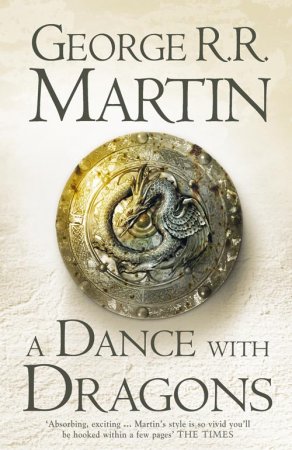 A Dance with Dragons
A Dance with Dragons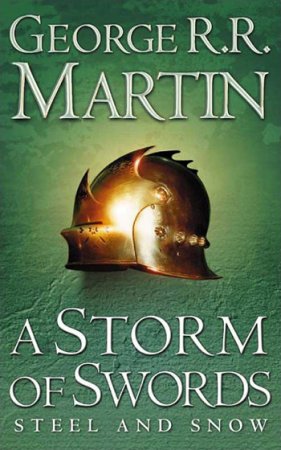 A Storm of Swords
A Storm of Swords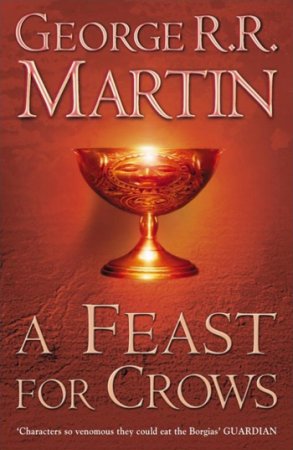 A Feast for Crows
A Feast for Crows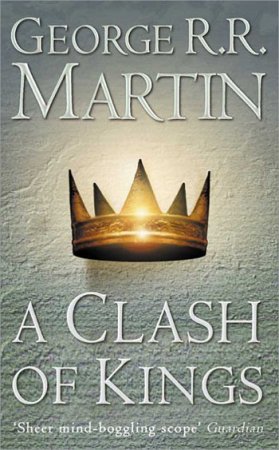 A Clash of Kings
A Clash of Kings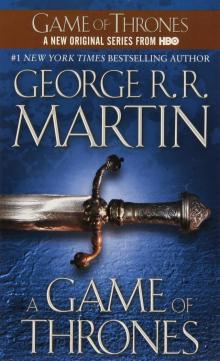 A Game of Thrones
A Game of Thrones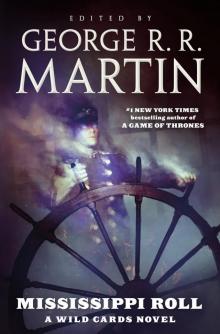 Mississippi Roll
Mississippi Roll Wild Cards V: Down and Dirty
Wild Cards V: Down and Dirty Busted Flush
Busted Flush When the Devil Drives
When the Devil Drives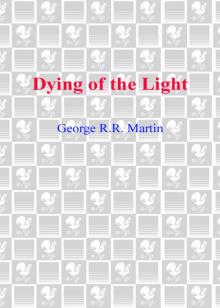 Dying of the Light
Dying of the Light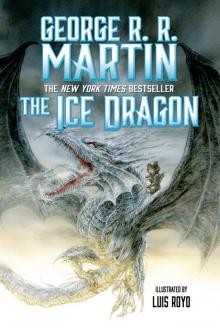 The Ice Dragon
The Ice Dragon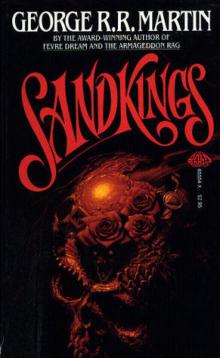 Sandkings
Sandkings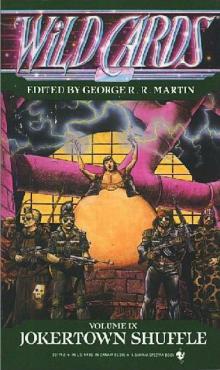 Jokertown Shuffle
Jokertown Shuffle Dreamsongs. Volume II
Dreamsongs. Volume II Deuces Down
Deuces Down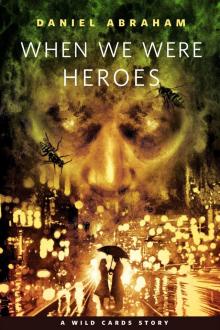 When We Were Heroes
When We Were Heroes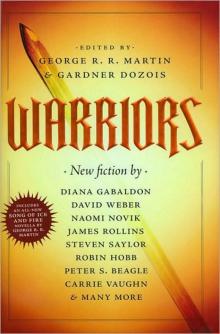 Warriors
Warriors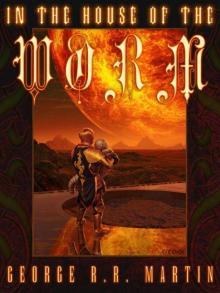 In the House of the Worm
In the House of the Worm Death Draws Five
Death Draws Five Dreamsongs. Volume I
Dreamsongs. Volume I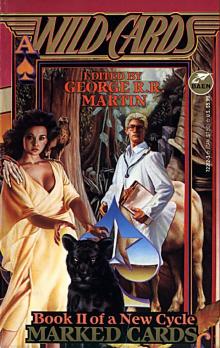 Marked Cards
Marked Cards Dreamsongs
Dreamsongs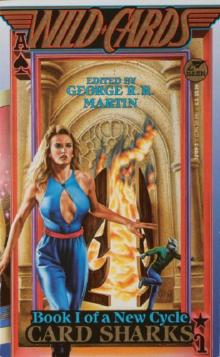 Card Sharks
Card Sharks Dangerous Women
Dangerous Women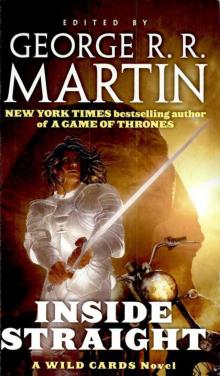 Inside Straight
Inside Straight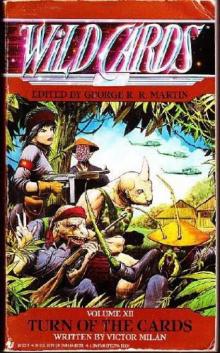 Turn of the Cards
Turn of the Cards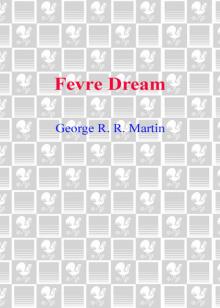 Fevre Dream
Fevre Dream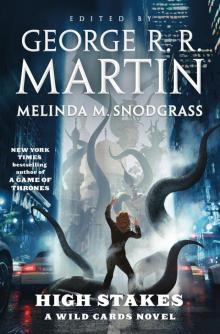 High Stakes: A Wild Cards Novel
High Stakes: A Wild Cards Novel Windhaven
Windhaven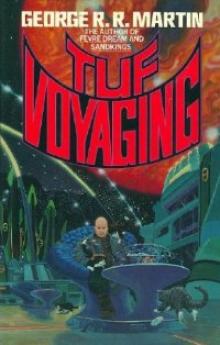 Tuf Voyaging
Tuf Voyaging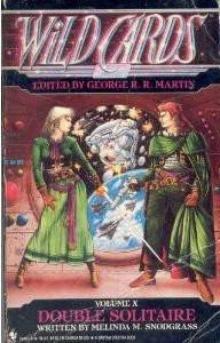 Double Solitaire
Double Solitaire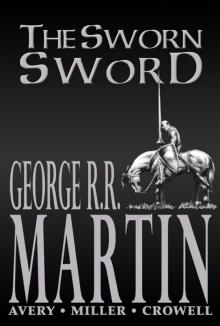 The Sworn Sword
The Sworn Sword Low Chicago
Low Chicago Dead Man's Hand
Dead Man's Hand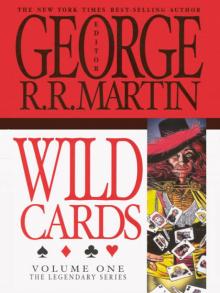 Wild Cards
Wild Cards Black Trump
Black Trump One Eyed Jacks
One Eyed Jacks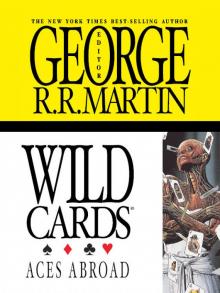 Wild Cards: Aces Abroad
Wild Cards: Aces Abroad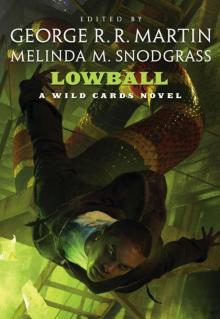 Lowball: A Wild Cards Novel
Lowball: A Wild Cards Novel Double Solitaire (2019 Edition)
Double Solitaire (2019 Edition) Dealer's Choice
Dealer's Choice Ace in the Hole
Ace in the Hole A Song for Lya: And Other Stories
A Song for Lya: And Other Stories Three Kings
Three Kings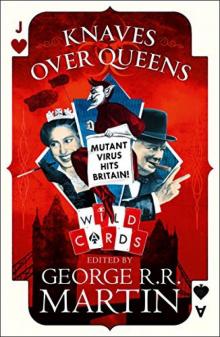 Knaves Over Queens
Knaves Over Queens Joker Moon
Joker Moon One Eyed Jacks wc-8
One Eyed Jacks wc-8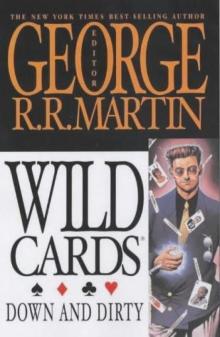 Down And Dirty wc-5
Down And Dirty wc-5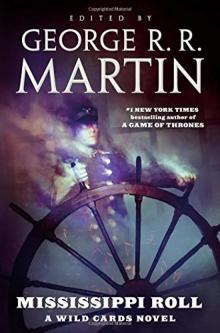 Mississippi Roll_A Wild Cards Novel
Mississippi Roll_A Wild Cards Novel A Feast for Dragons
A Feast for Dragons The Sworn Sword ttodae-2
The Sworn Sword ttodae-2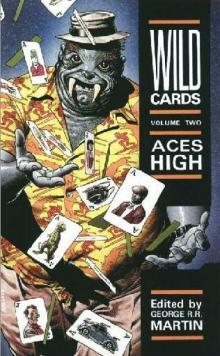 Aces High wc-2
Aces High wc-2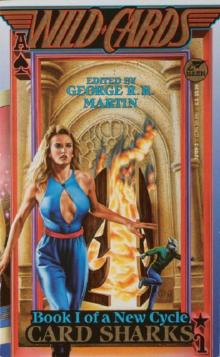 Wild Cards 13 : Card Sharks
Wild Cards 13 : Card Sharks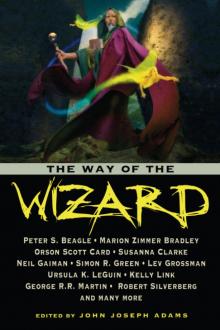 Way of the Wizard
Way of the Wizard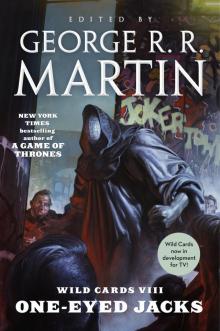 Wild Cards VIII: One-Eyed Jacks
Wild Cards VIII: One-Eyed Jacks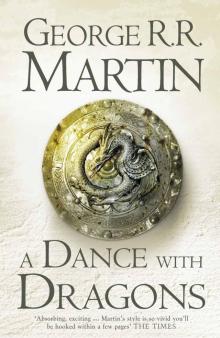 A Dance With Dragons: Book 5 of A Song of Ice and Fire (Song of Ice & Fire 5)
A Dance With Dragons: Book 5 of A Song of Ice and Fire (Song of Ice & Fire 5) The Princess and The Queen, Or, The Blacks and The Greens (a song of ice and fire)
The Princess and The Queen, Or, The Blacks and The Greens (a song of ice and fire)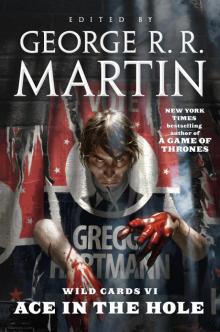 Wild Cards VI--Ace in the Hole
Wild Cards VI--Ace in the Hole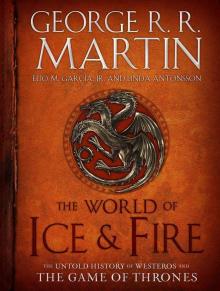 The World of Ice & Fire: The Untold History of Westeros and the Game of Thrones (A Song of Ice and Fire)
The World of Ice & Fire: The Untold History of Westeros and the Game of Thrones (A Song of Ice and Fire)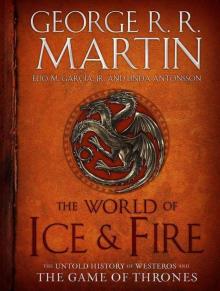 The World of Ice & Fire: The Untold History of Westeros and the Game of Thrones
The World of Ice & Fire: The Untold History of Westeros and the Game of Thrones Busted Flush wc-19
Busted Flush wc-19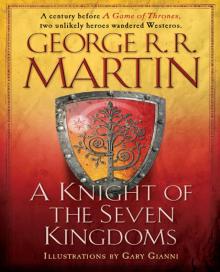 A Knight of the Seven Kingdoms
A Knight of the Seven Kingdoms Nightflyers: The Illustrated Edition
Nightflyers: The Illustrated Edition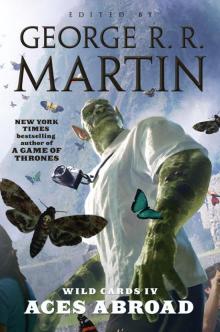 Wild Cards IV
Wild Cards IV Portraits of His Children
Portraits of His Children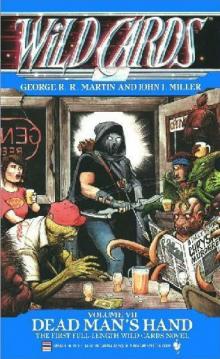 Dead Mans Hand wc-7
Dead Mans Hand wc-7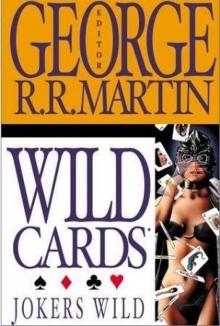 Jokers Wild wc-3
Jokers Wild wc-3 The Lonely Songs of Laren Dorr
The Lonely Songs of Laren Dorr Wild Cards III: Jokers Wild
Wild Cards III: Jokers Wild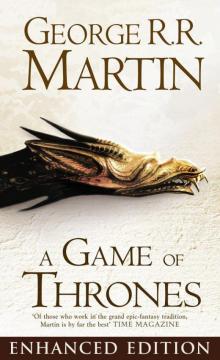 A Game of Thrones Enhanced Edition
A Game of Thrones Enhanced Edition Nightflyers & Other Stories
Nightflyers & Other Stories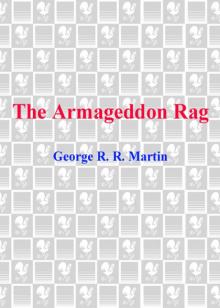 Armageddon Rag
Armageddon Rag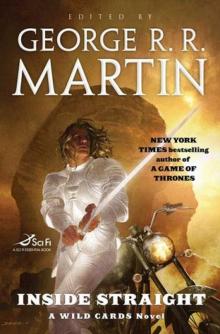 Wild Cards: Inside Straight
Wild Cards: Inside Straight A Song for Lya
A Song for Lya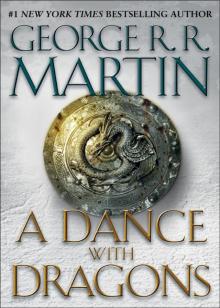 A Dance with Dragons: A Song of Ice and Fire: Book Five
A Dance with Dragons: A Song of Ice and Fire: Book Five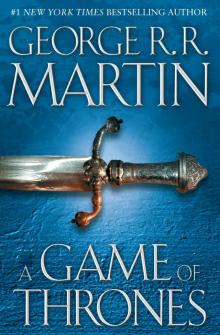 Song of Fire & Ice 01 - A Game of Thrones
Song of Fire & Ice 01 - A Game of Thrones Death Draws Five wc-17
Death Draws Five wc-17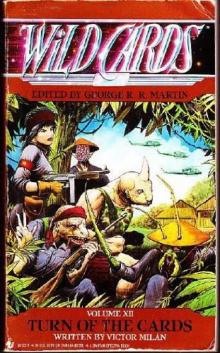 Turn of the Cards w-12
Turn of the Cards w-12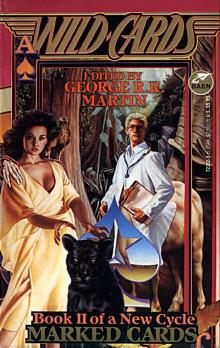 Wild Cards 14 - Marked Cards
Wild Cards 14 - Marked Cards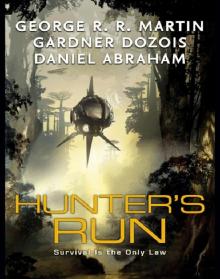 Hunter's Run
Hunter's Run The Glass Flower
The Glass Flower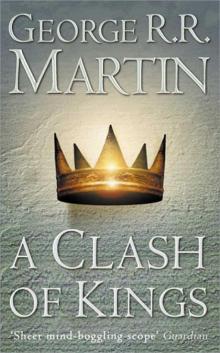 A Clash of Kings asoiaf-2
A Clash of Kings asoiaf-2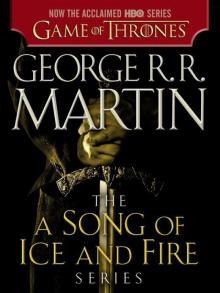 A Game of Thrones 5-Book Bundle: A Song of Ice and Fire Series: A Game of Thrones, A Clash of Kings, A Storm of Swords, A Feast for Crows, and A Dance with Dragons (Song of Ice & Fire)
A Game of Thrones 5-Book Bundle: A Song of Ice and Fire Series: A Game of Thrones, A Clash of Kings, A Storm of Swords, A Feast for Crows, and A Dance with Dragons (Song of Ice & Fire) Ace In The Hole wc-6
Ace In The Hole wc-6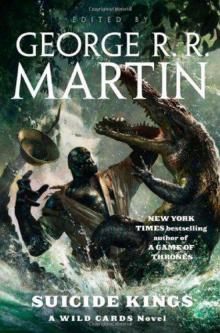 Suicide Kings wc-20
Suicide Kings wc-20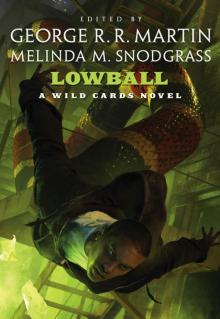 Lowball
Lowball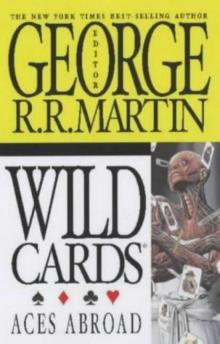 Aces Abroad wc-4
Aces Abroad wc-4 George R. R. Martin's a Game of Thrones 4-Book Bundle
George R. R. Martin's a Game of Thrones 4-Book Bundle A Feast for Crows asoiaf-4
A Feast for Crows asoiaf-4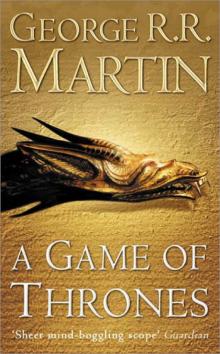 A Game of Thrones asoiaf-1
A Game of Thrones asoiaf-1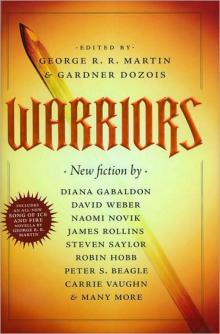 The Mystery Knight ttodae-3
The Mystery Knight ttodae-3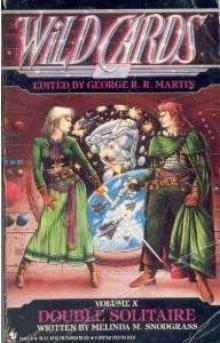 Double Solitaire w-10
Double Solitaire w-10 Wild Cards 15 - Black Trump
Wild Cards 15 - Black Trump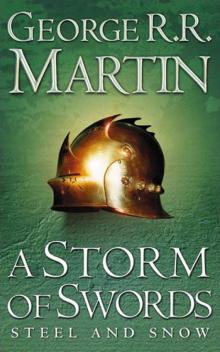 A Storm of Swords asoiaf-3
A Storm of Swords asoiaf-3 The Hedge Knight ttodae-1
The Hedge Knight ttodae-1 Dreamsongs 2-Book Bundle
Dreamsongs 2-Book Bundle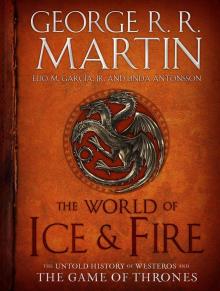 The World of Ice & Fire
The World of Ice & Fire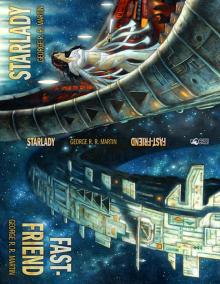 Starlady & Fast-Friend
Starlady & Fast-Friend Old Mars
Old Mars Fantasy For Good: A Charitable Anthology
Fantasy For Good: A Charitable Anthology Wild Cards V
Wild Cards V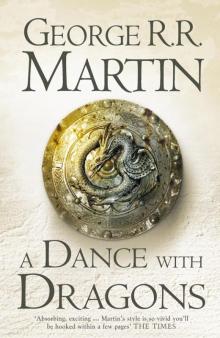 A Dance with Dragons asoiaf-5
A Dance with Dragons asoiaf-5 Dealer's Choice w-11
Dealer's Choice w-11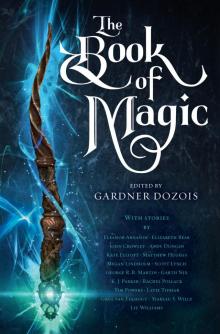 The Book of Magic
The Book of Magic A Game of Thrones 4-Book Bundle
A Game of Thrones 4-Book Bundle Texas Hold 'Em
Texas Hold 'Em Wildcards wc-1
Wildcards wc-1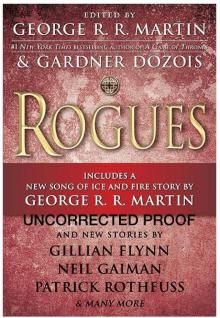 Rogues
Rogues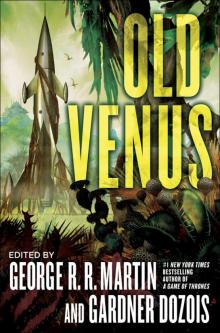 Old Venus
Old Venus